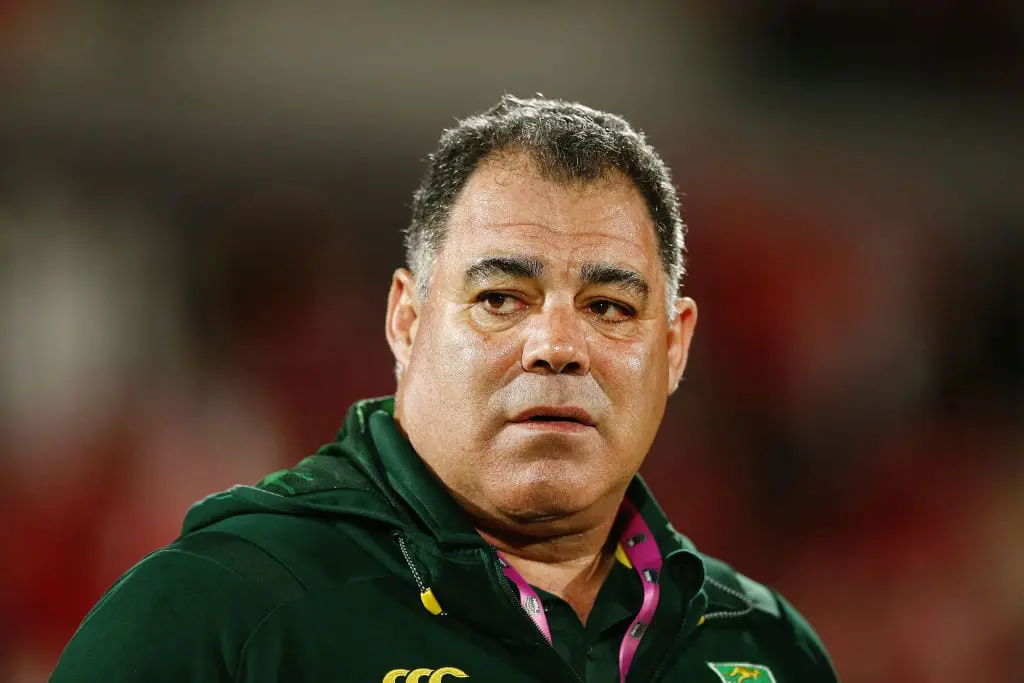With the World Cup due to kick-off in a little over a month, it is perhaps a good time to consider what the future structure of the rugby league season in Australia should look like.
The NRL seems determined to leave international rugby league technically out of season - following the conclusion of the NRL Grand Final in early October each year).
The international game in Australia has increasingly been frozen out of positions within the NRL season – think the loss of ANZAC Tests and the popular international weekend during the State of Origin period which also seems destined for the scrapheap from next year – which is directly opposed to the traditional structure of the rugby league season which existed from the start of the game in Australia in 1908 basically until the outbreak of the Super League War in the mid-1990s.
Rugby league in Australia seemingly had the mixture just right in the immediate Super League War period from 1985 – 1994. Club competitions (until 1988 including both Sydney and Brisbane) fed the selection of Origin teams, which in turn decided the allocation of national places in the Australian team.
That team would then play in-season Test matches against a touring international side or would tour themselves at the conclusion of the Australian season.
Accordingly, the pyramid of top-level Australian rugby league was extremely well balanced, with the game divided into three logical tiers.
The broader number of players at the club level supported the reduced number of players at Origin level which in turn supported the further reduced number of players playing for the national team.
Playing Test matches in season reinforced their importance as the pinnacle of the game and rugby league was well rewarded with large and regular attendances at these events. The cycle was well settled for more than 80 years with France, Great Britain/England and New Zealand touring Australia regularly.
The 1950s touring schedule as an example shows the diversity of teams and playing styles this saw influencing Australian rugby league:
| Year | Touring Team | Result |
| 1950 | Great Britain | Australia won Test series 2-1 |
| 1951 | France | France won Test series 2-1 |
| 1952 | New Zealand | New Zealand won Test series 2-1 |
| 1953 | USA | No Tests played |
| 1954 | Great Britain | Australia won Test series 2-1 |
| 1955 | France | France won Test series 2-1 |
| 1956 | New Zealand | Australia won Test series 3-0 |
| 1957 | World Cup in Australia | Won by Australia |
| 1958 | Great Britain | Great Britain won Test series 2-1 |
| 1959 | New Zealand | Australia won Test series 2-1 |
This had a constantly rejuvenating effect on the style of rugby league being played in Australia. France’s 1951 side was the first from that country to be given the cherished title of being exponents of “champagne football”.
The most astute critics of the time, such as doyen journalist Tom Goodman, recognised the positive effects of such effervescent play, contrasting it with the “flat beer” of Australian orthodoxy.
Importantly, it also gave international teams the valuable opportunity to improve by competing against the world’s best standard so often set by the Kangaroos.
This also constantly diversified rugby league’s annual offering from merely club and State level competition. Test match series were also accompanied by other major games in their own right – as touring teams clashed with regional teams as well as representative sides from Sydney, New South Wales, Brisbane and Queensland.
For example, the Great Britain match against NSW on the 1950 British tour was witnessed by an incredible 70,419 fans at the Sydney Cricket Ground (well over the comfortable capacity of the ground). Such occasions have been totally lost from the rugby league landscape in Australia due to the absence of incoming Test tours.

Traditionally, Australian rugby league sought to build the international landscape of the game outside Australia itself, something which the modern NRL seems to have little consideration for. This makes almost no sense whatsoever when rugby league’s primary Australian competitor, the AFL, is considered.
While the AFL would give its eye teeth for settled international competition and structures (see their egregious waste of money playing competition games in China), the NRL continues to undermine the very body charged with administering the international game, the IRL, as was so ruthlessly demonstrated in 2021 with Australia’s snubbing of the World Cup.
This is so obviously counter-productive as to warrant direct criticism of the NRL and the Australian Rugby League Commission for their failure to recognise the importance of the international game throughout rugby league’s long and storied history, and its clear importance for the future.
Seemingly taking endless cues from the NFL (a sport entirely without a decent level of international competition), the NRL continues to lose sight of the fact that rugby league has always been strengthened by its international structures – thus permitting a World Cup competition of 68 years standing to continue to thrive and grow.
The NRL needs to completely reframe its current narrative around international rugby league (and that of its media representatives) by adopting an inclusive approach to this level of the game. The current exclusive approach continues to prevent rugby league from achieving its full international potential.
The bevy of anti-internationalists in the Australian rugby league media should be called out for their negative and damaging misrepresentations towards this level of the game, as some have held concentrated positions of power within the game for far too long.
The captain and coach of the Kangaroos – as Australia’s most successful national sporting side – need to display greater enthusiasm and passion for the international game.
Mal Meninga’s deep associations with the Queensland Origin side have been allowed to inadvertently compromise his position as national coach – in particular, selection decisions have been made which seemingly sacrificed the greater international good for assisting domestic Origin teams.

The lessons of the Terry Fearnley affair from 1985 – ie. distancing the national team from Origin coaches – have been seemingly lost in time. (Indeed, the current Origin coaches, Billy Slater and Brad Fittler, were to be included in Kangaroos selections this year until they quite rightly dropped out citing the obvious conflict of interest.)
Australia’s responsibility to international rugby league does not end in the Pacific, but should extend to wherever rugby league is played around the world. The NRL has been blessed by the largely organic growth of player strength amongst Polynesian and Melanesian communities – yet Test matches in places like PNG, Tonga, Fiji and Samoa remain almost unheard of outside PM XIII off-season trips to Port Moresby.
Australia is far too keen to portray its sphere of influence as limited to the Oceania region, while leaving development everywhere else in the world to England (how else would the northern hemisphere end up being largely responsible for developments as far afield as in Jamaica and southern Africa?), or individual enthusiasts (such as the fierce determination showed by the likes of Robert Burgin in starting rugby league in Brazil).
The NRL needs to completely buy into international rugby league again, something it has not done since the Super League War. This means playing matches of note in season (which will require the NRL to build international windows a la world soccer into the Australian rugby league season), supporting the development of rugby league around the globe, and reframing current media narratives by its established partners such as Channel Nine (who conspicuously failed to bid for any games at this year’s World Cup).























